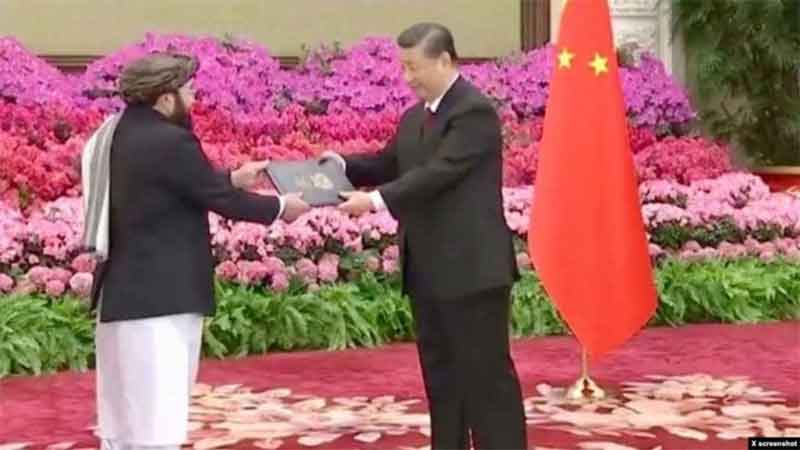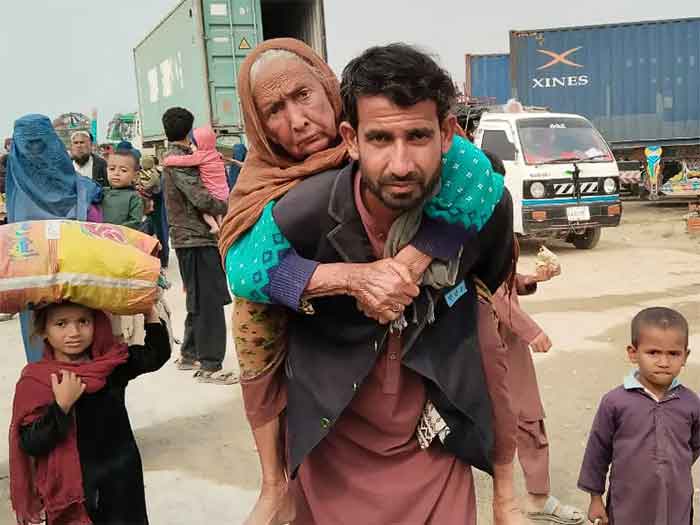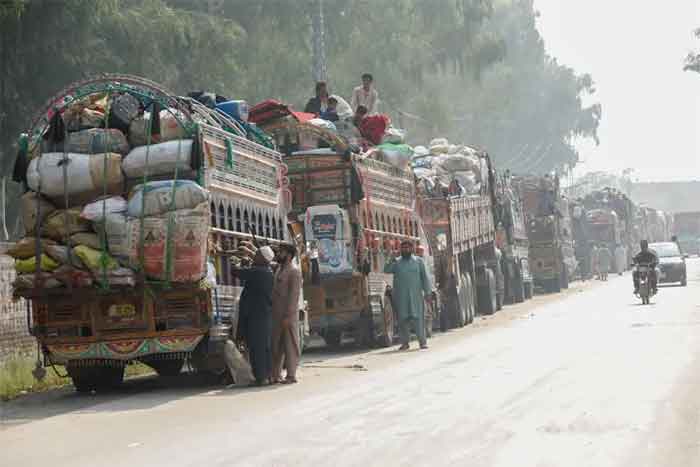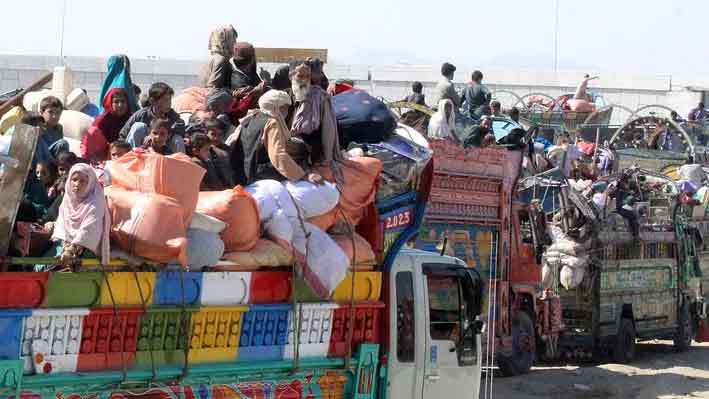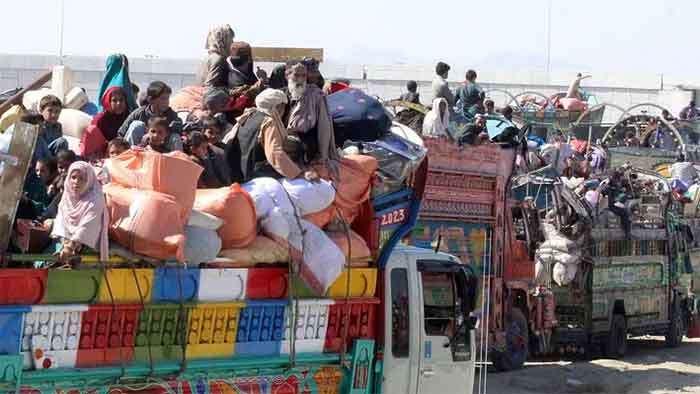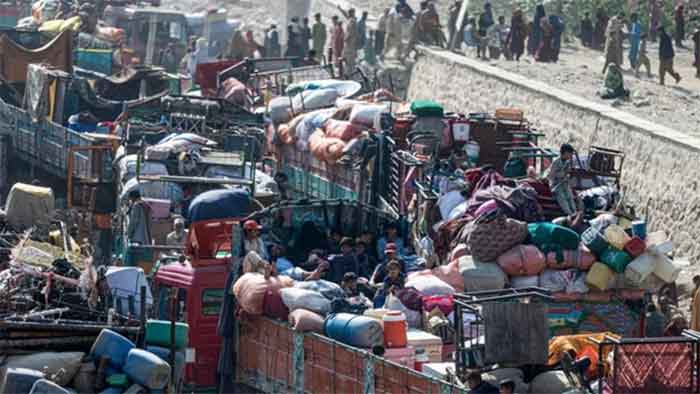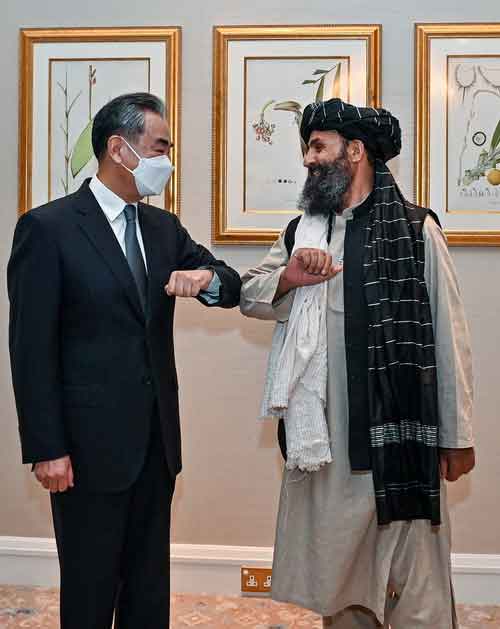
All indications are that the regional states are preparing to accord recognition to the Taliban government. The meeting of regional states and Taliban officials in the so-called Moscow Format last Wednesday signalled that the Taliban government is a compelling reality and constructive engagement is needed. read more
A week is a long time in politics. The foreign-minister level conference in Tehran tomorrow with the participation of Afghanistan’s neighbouring countries is sure to deliberate on formal diplomatic ties with the Taliban government. Unsurprisingly, the Taliban has not been invited to the event.
All eyes will be on the Chinese State Councilor and Foreign Minister Wang Yi. Wang left Beijing on Monday and headed for Doha en route to Tehran where he held talks with the top Taliban government leaders Acting Deputy Prime Minister Mullah Abdul Ghani Baradar and Acting Foreign Minister Amir Khan Muttaqi.
This is the highest level political contact so far since the announcement of the Afghan interim government in early September. The symbolism is profound that Wang is heading for the Tehran conference after consulting the Taliban leadership.
Significantly, Chinese President Xi Jinping also had a call with Pakistani Prime Minister Imran Khan today. The Xinhua report underscored Xi’s call for building an even closer China-Pakistan community “with a shared future in the new era”.
In a veiled reference to the US’ strategic competition with Beijing, Xi referred to the “profound changes unseen in a century, with more sources of turbulence and risks around the world”. Xi exhorted that in such conditions, China and Pakistan should “stand together even more firmly and push forward the all-weather strategic cooperative partnership.”
Xi touched on the CPEC and the need to strengthen counter-terrorism and security cooperation. The Pakistani readout disclosed that the two leaders also discussed the regional and international situation, including Afghanistan.
It said the sides “called on the international community to provide immediate humanitarian and economic assistance to the Afghan people to alleviate their suffering, prevent instability and flight of people, as well as continued engagement for the rebuilding of the country.”
Xi’s conversation with Imran Khan most certainly took on board Wang’s structured discussions in Doha with Mullah Baradar on Monday.
The Chinese foreign ministry readout on the Doha meeting highlighted Wang’s remark that “Afghanistan, now standing at a critical stage of transforming from chaos to governance, is currently facing a historic opportunity to truly master its own destiny, achieve inclusiveness and reconciliation, and advance national reconstruction.”
Wang acknowledged the imperative need for “more understanding and support” from the international community for the Taliban government to meet “quadrupole challenges” — humanitarian crisis, economic chaos, terrorist threats and governance difficulties.
Wang listed China’s expectations from the Taliban government and called on “all parties to engage with the Afghan Taliban in a rational and pragmatic manner to help Afghanistan embark on a path of sound development.”
Importantly, he reiterated Beijing’s expectation that Taliban “will make a clean break” with the ETIM and other terrorist organizations, and “take effective measures to resolutely crack down on them.”
The Chinese readout highlighted Baradar’s assertion that “the overall situation in Afghanistan is under control and improving, with the governments at all levels being gradually established and government decrees being carried out effectively.”
It singled out Baradar’s firm commitment that Taliban “will learn from historical experience” — Taliban government “will continue to take inclusive measures to expand the representation of the regime”; will recruit induct “more outstanding personnel of all ethnic groups”; will “strengthen the efforts to protect the rights and interests of women and children, and will not deprive them of the rights to education and work.”
Interestingly, Baradar added that “For now, women in medical institutions, airports and other places have resumed their work, and girls in primary and secondary schools in many provinces have returned to school, but they still face difficulties such as lack of facilities and funds.”
The crux of the matter is that Wang heard from the Taliban government leadership at the highest level that “Pursuing a friendly policy toward China is the firm choice by the Afghan Taliban, and Afghan hopes to strengthen cooperation with China in various fields. The Afghan Taliban, which attaches great importance to China’s security concerns, will resolutely honor its promise and never allow anyone or any force to use the Afghan territory to harm China.”
Conceivably, conditions exist more or less for Beijing to move toward to accord recognition to the Taliban government should it decide so.
For an optimal Afghan strategy it is useful that in the soonest possible way formal government-to-government ties with Kabul are restored so that alongside humanitarian assistance, Beijing can also beef up security cooperation and set the ball rolling for Afghan reconstruction within the ambit of the Belt and Road Initiative.
To be sure, the bottomline is that China (and the Central Asian states and Iran) is convinced of the urgency of strengthening the hands of the Taliban government if the fight to vanquish the ISIS and other terrorist groups is to be effective.
The shootout in Herat in northwestern Afghanistan near Iran’s border on October 24 between the Taliban and the ISIS militants testify to the criticality of the emergent security situation.
Will Russia go along with China to recognise the Taliban government? The short answer is ‘Not yet’. Foreign Minister Sergey Lavrov has expressed inability to travel to Tehran on Wednesday.
However, Russian presidential envoy on Afghanistan Zamir Kabulov acknowledged yesterday, “Beyond a doubt, this (Moscow Format discussions) creates a good basis for the start of the process of recognising the new authorities.” He disclosed that the reopening of the Russian consulate in Mazar-i-Sharif is in the cards.
Russia may empathise with the regional consensus on recognition but the archaic legislation in its statute books prohibits any form of formal dealings with the Taliban. President Putin anticipates that the day is not far off when the legislation can be done away with.
Moscow and Beijing would have a coordinated approach that the recognition of the Taliban government should not smack of “bloc mindset”. Meanwhile, Russia is saddled with its pet project, ‘Troika Plus”, which notionally keeps the door open to cooperate with the US, which the Taliban views positively.
That said, Moscow also would have en eye on the European Union’s active plan to reopen the mission in Kabul by next month.
Ambassador M K Bhadrakumar served the Indian Foreign Service for more than 29 years. He introduces about himself thus: “Roughly half of the 3 decades of my diplomatic career was devoted to assignments on the territories of the former Soviet Union and to Pakistan, Iran and Afghanistan. Other overseas postings included South Korea, Sri Lanka, Germany, and Turkey. I write mainly on Indian foreign policy and the affairs of the Middle East, Eurasia, Central Asia, South Asia and the Asia-Pacific…”
His mail ID : [email protected]
Originally posted in, Indianpunchline

